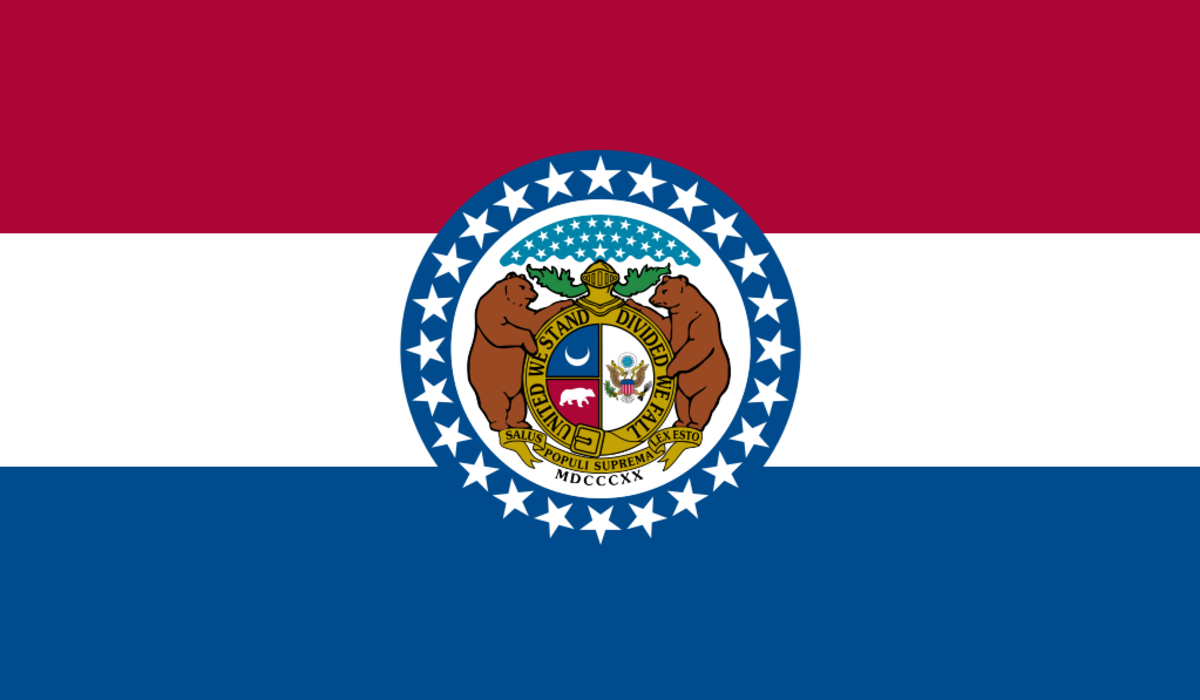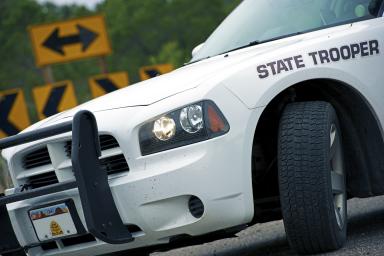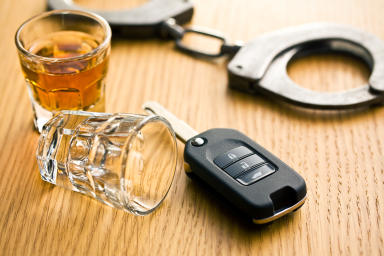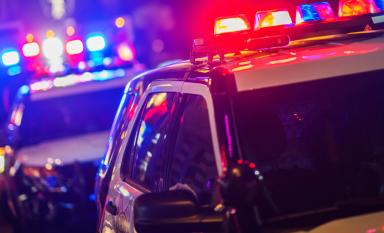Missouri DUI Laws

The Missouri State Highway Patrol found that in 2022, 4,416 alcohol-related accidents took place throughout the state. Over 1,600 of these resulted in the injuries of 2,318 Missourians in total, while 117 were killed in a total of 109 fatal crashes. In terms of locations, Jackson County recorded the highest number of impaired driving crashes with 722, followed by St. Louis County with 669. On average, the Missouri Department of Transportation believes that impaired driving is the major contributing factor to at least 20% of all traffic fatalities in the state.
Because of this, Missouri’s government agencies enforce laws and perform initiatives that aim to prevent the occurrence of more alcohol-related crashes. For instance, the Missouri Department of Mental Health oversees the Substance Awareness Traffic Offender Program, which drunk drivers are required to complete after their license has been revoked or suspended. The Missouri DOT and the State Highway Patrol also carry out strategic initiatives to mitigate the presence of intoxicated drivers on state roads.
To help Missourians learn about the laws related to drunk driving within the state, this article will provide basic explanations of such regulations, along with the penalties that are imposed upon motorists who end up violating them. In addition, the article will discuss the legal requirements and guidelines involved in the resulting lawsuit or claim of Missourians who are injured in a drunk driving accident.
General DUI Laws and Guidelines in Missouri
Like all states in the country, Missouri explicitly prohibits people from driving a vehicle while intoxicated or impaired due to the effects of alcohol, drugs, or any combination of these substances. A motorist is charged “per se” for driving with excessive blood alcohol content if they have a BAC level of 0.08% or greater. Commercial vehicle operators and drivers under the age of 21 are subject to even lower thresholds of 0.04% and 0.02%, respectively.
However, a person can still be convicted regardless of their BAC level if they show obvious signs of intoxication. This can also apply even if the offender was simply in a position to regulate their vehicle’s movements without actually driving it. Additionally, a motorist will be convicted of a separate offense if they consume any alcoholic beverages while driving.
A DWI charge in Missouri can escalate into an aggravated DWI and thus result in stricter sanctions if:
The offender is driving with a BAC level of 0.15% or higher;
The offender causes an accident that results in another person’s injury or death.
Missouri’s Implied Consent Law
Any motorist in Missouri who is suspected of committing a DWI offense is required to submit to a chemical test to determine their BAC level under the state’s implied consent law. Under this legal rule, a person is automatically deemed to have given their consent to undergo such a test once they choose to operate a vehicle. The test will be carried out at the request of an arresting officer who has sufficient reason to believe that the person is driving a vehicle while intoxicated. The same applies if the motorist is involved in an accident that results in serious injuries or death.
When arresting a potential offender, an officer will state the reason for a chemical test and the legal consequences involved if the individual refuses to submit to it. A refusal will be treated as admissible evidence against the offender and result in additional penalties. A test will still be carried out even if the individual involved is dead, unconscious, or in any condition that renders them unable to refuse since the law deems that they have not withdrawn their consent.
What Are the Penalties for a DUI in Missouri?
The types of penalties imposed for DWI offenses in Missouri depend on whether the offender is convicted of a misdemeanor or felony DWI. The sanctions become increasingly stricter with each infraction, especially if an individual is convicted of DWI within five years of a previous conviction. Additionally, an offender can face even harsher penalties if they are convicted of aggravated DWI, as mentioned above. In general, first and second offenses are treated as misdemeanors, while third and subsequent ones are considered felonies.
DWI offenses are also classified as felonies based on the following factors:
A class E felony if the offender causes serious or non-serious injuries to people or non-serious injuries to a police officer or emergency services worker;
A class C felony if the offender causes serious injuries to a police officer or emergency services worker, or if they cause the death of another person;
A class B felony if the offender causes the death of a police officer or emergency services worker, two or more people, or one person while having a BAC level of 0.18%.
Some of Missouri’s DWI penalties are as follows:
A DWI offender will also receive varying demerit points on their license depending on the number of convictions they have, and they will be required to drive with an ignition interlock device for at least six months starting with their second offense. In addition, they may be ordered to perform community service if the judge sentences them to a period of probation.
Missouri has separate sanctions for those who violate the state’s implied consent law by refusing to submit to a chemical test. These can include a one-year revocation of their driving license and a six-month period of driving with an ignition interlock device. These penalties can be enforced alongside any others that stem from an impaired driver’s DWI conviction.
If a DWI offender is a commercial vehicle driver, they will receive two demerit points on their driving record, and they will be prohibited from operating any commercial vehicle for up to one year. Repeat offenses can result in their permanent disqualification from driving commercial vehicles.
If the offender is a driver under the age of 21 and over the age of 15, their license will be suspended for 30 days on their first offense and 90 days on their second offense. If they commit a third or subsequent infraction, their license will be revoked for up to one year.
Missouri’s Dram Shop Law
Under Missouri’s revised dram shop law, any establishment that sells or serves alcoholic beverages can be held liable for selling or serving alcohol to a motorist, especially if the individual in question causes an accident later on. However, this only counts if:
The motorist was already visibly intoxicated when the establishment served them;
The establishment was aware that the motorist was under 21 years of age.
According to state law, a person is considered “visibly intoxicated” if they show signs of significant physical dysfunction or uncoordinated physical action. The individual’s BAC level is not considered prima facie evidence of them being visibly intoxicated, though it is treated as admissible evidence of their intoxication.
However, it should be noted that Missouri’s dram shop law only covers establishments that sell or serve alcohol for direct consumption within its premises. This means that bars, restaurants, and taverns can be held liable, but not liquor or convenience stores where alcoholic beverages are packaged. Additionally, the dram shop law does not give victims the right to recover compensation from an establishment for any injury or death unless the person who caused the accident is under the age of 21.
Lastly, while alcohol-licensed establishments can be sued in Missouri, there is no civil liability for social hosts in the state. This means that victims are not allowed to sue the host of any party or gathering that furnished alcohol to the person who caused their injury.
How Much Can Someone Sue For a Drunk Driving Injury in Missouri?
Missouri does not have any statutory caps on the amount of damages that can be pursued and awarded in impaired driving accident cases; the state’s sole cap is for non-economic damages in medical malpractice cases. This means that those who are injured by a drunk driver in a vehicular crash can recover the full extent of their losses, which can include:
Costs related to present and future medical treatments;
Costs related to the repair or replacement of damaged property;
Lost income or loss of employment opportunities due to the victim’s injury;
Funeral and burial expenses if the victim perished in the accident;
Pain and suffering;
Loss of companionship;
Loss of enjoyment of life.
In addition to these damages, the court can allow and award punitive damages in a case, but only if the plaintiff proves using “clear and convincing evidence” that the defendant intentionally inflicted harm on them or acted with a willful disregard for the safety of others. However, the plaintiff can only file a claim for punitive damages with the permission of the court since it cannot be submitted alongside their initial pleading. Additionally, they can only file such a claim along with relevant documents and affidavits within 120 days before the final pretrial conference or the date set for their trial.
Missouri’s Pure Comparative Negligence Rule
While Missouri lacks any type of damage cap in drunk driving accident cases, the state can deduct the potential award of a plaintiff through its pure comparative negligence rule. This applies if the victim in the case is partially liable for causing the accident that resulted in their injuries or losses. The percentage deducted from their damage award is equal to the percentage of their assigned fault.
A specific example can involve a motorist who was speeding at the time when a drunk driver collided with their vehicle. While the latter party is the leading cause of the accident, the court can rule that the victim is also 25% liable for the crash because they were driving beyond the speed limit. If they are awarded $300,000 in damages, 25% will be deducted in line with their apportioned fault, and they will receive only $225,000.
A plaintiff can recover damages even if they were 99% at fault under the pure comparative negligence rule; this is in contrast to the rule of modified comparative negligence in certain states, where people can no longer pursue compensation for their losses if their fault reaches or exceeds a given percentage.
The Statute of Limitations in Missouri
Drunk driving accident victims in Missouri have a maximum of five years to take legal action against the person who caused their injury. This also applies if an accident only results in damaged property. The deadline begins counting down from the date of the underlying crash that caused the victim’s injury or losses.
In case an impaired driving accident results in the death of a victim, their spouse, children, parents, relatives, or a plaintiff ad litem will have up to three years to take legal action for wrongful death. Unlike in injury-related cases, Missouri’s statute of limitations for wrongful death claims or lawsuits will start from the date of the victim’s passing.
Tolling and Extending the Statute of Limitations
There are instances where Missouri’s statute of limitations is delayed or begins at a different time. For example, the state adheres to the discovery rule, which can apply if a person finds out about an injury they have suffered from an incident at a later time. If this happens, the statute will only start counting down on the date when the injury was discovered or should have been reasonably discovered.
If the individual who is entitled to file a suit in a case is under the age of 18 or mentally incapacitated, Missouri law states that the person will have up to three years after they turn 18 or recover from their mental incapacity to sue. However, they can no longer do so if more than 21 years have passed since the date of the accident that caused their injury or losses.
If the person who has the right to sue dies before the statute of limitations expires and their case survives to their representatives, such individuals are given a maximum extension of one year after the statute’s expiration to file a suit on the deceased person’s behalf.
Lastly, if the defendant in a case leaves the state before or after the plaintiff gains the right to take legal action against them, the statute will only continue counting down upon the defendant’s return.
Resources for Folks Injured by an Impaired Driver in Missouri
The Missouri Bar
The Missouri Bar provides residents throughout the state with legal assistance and resources. It has an official directory where Missourians can search for lawyers using their name, location, and bar number. It also offers access to the Lawyer Search service, where people can find attorneys based on their practice areas for potential legal representation. Its online resources cover various topics, ranging from lawyer fees and attorney-client relationships to post-accident guidelines and traffic court proceedings. Additionally, those with fee-related issues can seek assistance for free under the Fee Dispute Resolution Program, while people with ethical complaints against a lawyer or judge can find information on how to relay their grievances on the organization’s website.
Missouri State Highway Patrol - Traffic Crash Report Request
The Missouri State Highway Patrol allows motorists who are involved in vehicular crashes to obtain a copy of their accident report for a fee of $5.99. Missourians can submit their request form for a report copy to the Highway Patrol division that investigated the crash or the nearest Highway Patrol headquarters from their location. Reports only become available after 10 days from the date when the accident was investigated. The payment for a copy must be mailed alongside the request form as either a check or money order payable to the DPS - Missouri Highway Patrol; cash payments are not accepted. Requests can also be sent to the Patrol Records Division via P.O. Box 568, Jefferson City. Those with additional questions can contact the Patrol Records Division at (573) 522-2590 or the Highway Patrol division that is closest to their location.
Missouri State Highway Patrol - Filling a V.O.I.D.
The Filling a V.O.I.D. (Victims Of Impaired Drivers) program of the Missouri State Highway Patrol was created in 1997 to provide firsthand assistance to those who have suffered injuries and losses in an accident caused by a drunk motorist. The patrol’s website offers basic information regarding the type of aid the program offers, including post-accident emotional support, referrals to service providers, and assistance in qualifying for the state’s Crime Victims Compensation Program. State troopers are also ready to address any questions or concerns related to Filling a V.O.I.D. and the procedures involved in the wake of an accident. For additional queries, the Missouri State Highway Patrol can be contacted via telephone at either 1-888-773-1800 or 1-573-526-6372, or through e-mail at gretchen.vislay@mshp.dps.mo.gov.
Mothers Against Drunk Driving - Missouri
Mothers Against Drunk Driving is a nationwide organization that is committed to helping people who have suffered harm in impaired driving accidents. Its Missouri branch raises awareness among state residents by offering access to resources that describe local laws, guidelines, and statutes related to drunk driving. Its team can also assist victims in drafting legal statements, finding an attorney who can handle their case, and attending trials if needed. In addition, it can offer information on how to qualify for local compensation programs and connect survivors with emotional support groups that can contribute to their long-term physical and mental recovery.
Expertise.com StaffAuthor
Step into the world of Expertise.com, your go-to hub for credible insights. We don't take accuracy lightly around here. Our squad of expert reviewers, each a maestro in their field, has given the green light to every single article you'll find. From rigorous fact-checking to meticulous evaluations of service providers, we've got it all covered. So feel free to dive in and explore. The information you'll uncover has been stamped with the seal of approval by our top-notch experts.




